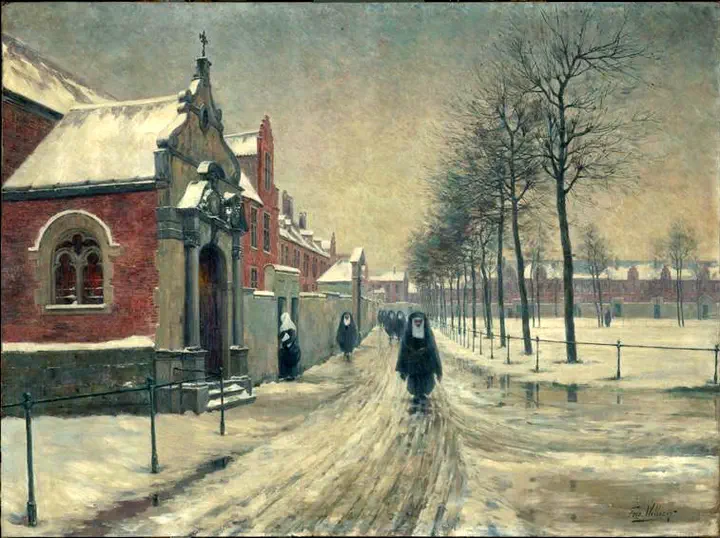Roots of Gender Equality: the Persistent Effect of Beguinages on Attitudes Toward Women
 Ferdinand Willaert, Entrée du béguinage à Gand (l’hiver)
Ferdinand Willaert, Entrée du béguinage à Gand (l’hiver)
Abstract
Awarded the ‘UWIN Best Paper Award on Gender Economics’, 7th edition.
Awarded a ‘Valeria Solesin’ accessit, 2018 edition.
This paper is concerned with the historical roots of gender equality. It proposes and empirically assesses a new class of determinants of gender equality: increases in women’s bargaining power through reductions in the cost of remaining single. In particular, enlarging women’s options besides marriage —even if only temporarily— increases their bargaining power with respect to men, leading to a persistent improvement in gender equality. We illustrate this mechanism focusing on the specific Belgian context, and relate gender-equality levels in the 19th century to the presence of medieval, female-only communities called beguinages that allowed women to remain single amidst a society that advocated the opposite. Combining precise beguinages’ location with 19th-century census data, we document that beguinages were instrumental in decreasing the gender gap in literacy.